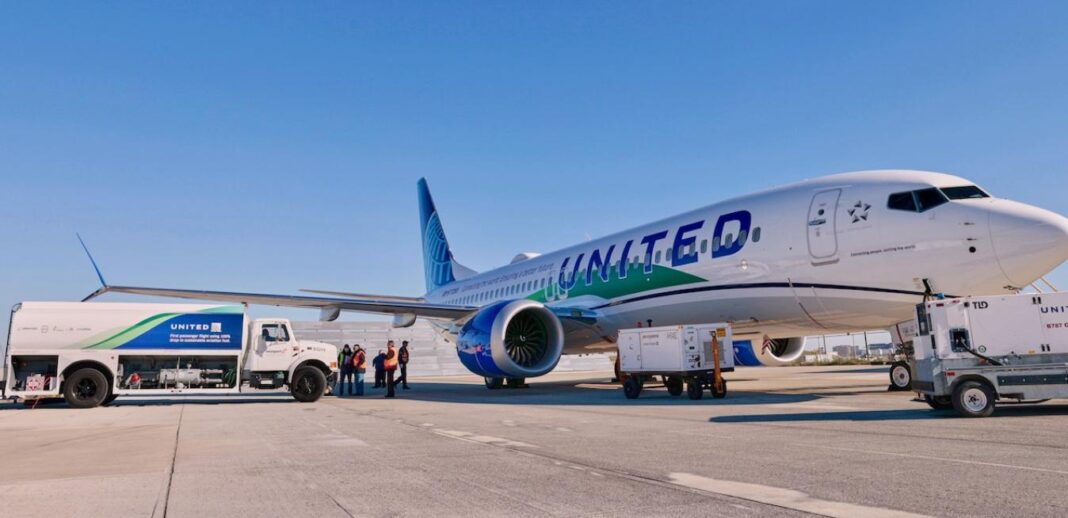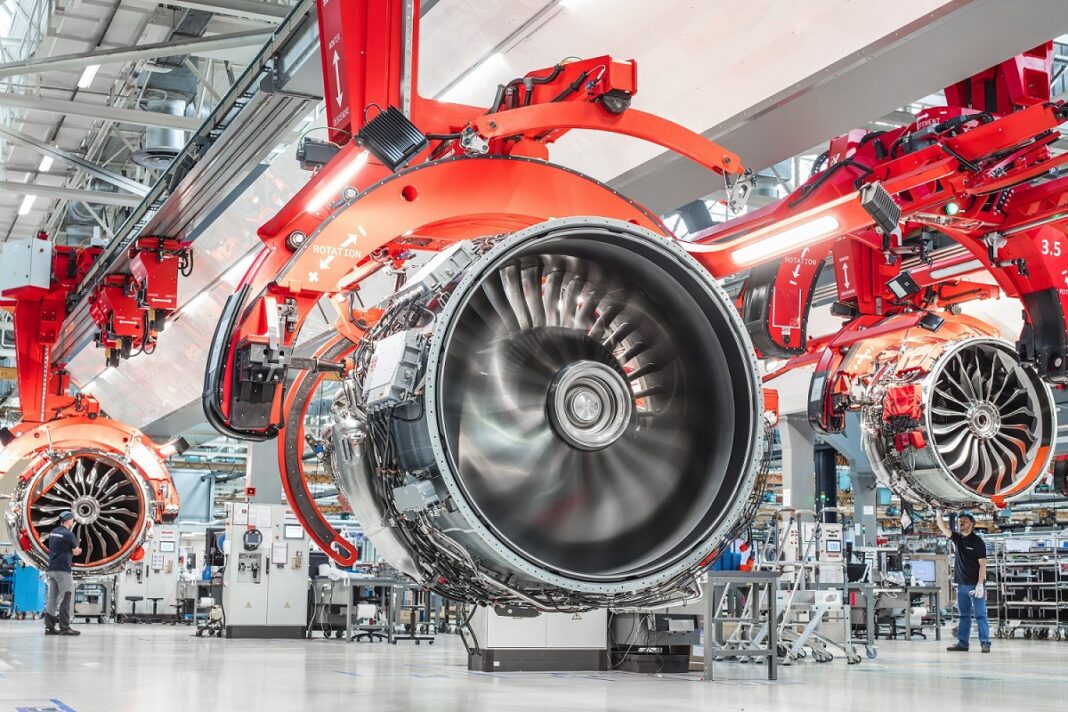On December 1, 2021, United Airlines carried out the first-ever passenger flight operated with 100% sustainable aviation fuel – SAF – for one of the two engines of its Boeing 737 MAX 8.
Flights operated completely on sustainable aviation fuel are not currently authorized, so only one of the LEAP-1B engines, developed by CFM International, a joint venture between GE Aviation and Safran Aircraft Engines, could be powered at 100%.
United CEO Scott Kirby, who was on board the aircraft, said, «Today’s SAF flight is not only an important milestone for efforts to decarbonize our industry but also when combined with increased industry commitments to produce and purchase alternative fuels, we are demonstrating the scalable and impactful way in which companies can come together and have a role to play in addressing the greatest challenge of our lifetimes.»
The combined efforts among several companies in the industry are clearly looking to pave the way to certifying operations with 100% SAF in the near term. See also: Airbus says: commercial flights operated with sustainable aviation fuel are promising and Embraer and Pratt & Whitney partner to initiate a 100% sustainable aviation fuel flight demonstration program.
See also: Airbus speaks out: commercial flights powered by sustainable aviation fuel are promising and Embraer and Pratt & Whitney partner to initiate a 100% sustainable aviation fuel flight demonstration program
Aviation history is cleared for takeoff.
The world’s first passenger flight using 100% sustainable aviation fuel (SAF) is en route to @Reagan_Airport. pic.twitter.com/63Don45bBg
— United Airlines (@united) December 1, 2021
On that note, GE Aviation reported that Etihad Airways and British Airways used a fuel blend containing SAF in test operations recently and is also working with Emirates to test 100% SAF in 2022.
The sustainable aviation fuel used for the United flight was «drop-in» ready, which means it can be used as a replacement for Jet A and conventional Jet A-1 without any modifications to engines or aircraft structures. Importantly, this makes it compatible with existing fleets and fuel storage and distribution infrastructures.
GE Aviation has been a pioneer in testing SAF for commercial flights. Gurhan Andac, its engineering leader for aviation fuels and additives, has played an important role in sustainable biofuels and synthetic fuels research. He is currently chairing an international working group that is developing standardized industry specifications to promote 100% adoption of SAF in flight.
A release issued by GE Aviation reports that «sustainable jet fuel can be made from 60 different feedstocks, including vegetable oils, algae, fats, fats, waste streams, alcohols, sugars, captured CO2 and other alternative feedstock sources and processes. The Department of Energy estimates that the United States alone has the resources to produce 50 to 60 billion gallons of SAF per year.»
The use of sustainable aviation fuel is one of the first major steps that the industry can take to advance the goal of decarbonizing operations, but this is not enough, since PBS offers up to 80% emissions reductions, but not the net-zero that the industry is aiming for.
United Airlines stated that they hope that the flight will encourage other airlines to start implementing sustainable aviation fuels in their operations. So far, only 1% of the fuel consumed in aviation is SAF.
Gaël Méheust, President and CEO of CFM International, said, «Direct SAF is something our industry can embrace now to begin advancing our commitment of being net-zero carbon emissions by 2050 (…) Together with our parent companies, GE Aviation and Safran Aircraft Engines, we congratulate United for taking this bold initiative and look forward to even greater cooperation in the future».







